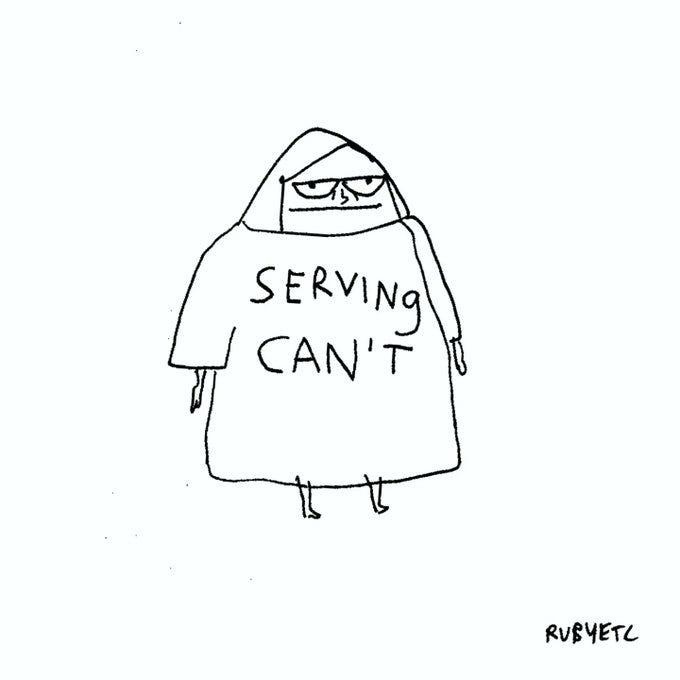Do you do a seasonal or perpetual chore in the house?
Turns out, who does which chore, when, and how often is just as imporant as splitting them evenly.
What are your chores at home?
Are you in charge of the dishes, or perhaps it’s your task to take out the trash every day?
In most heterosexual marriages and homes, certain chores are allocated to certain genders.
Men often take out the trash, mow the lawn, build furniture, weatherproof for rain, snow, etc., deal with electricians/plumbers, or fix any issues around the house themselves.
Women, more commonly, take on roles like cooking meals, cleaning up, and, of course, childcare. Now, we won’t consider childcare a ‘chore’ for the sake of this post.
Why are men’s and women’s chores different at home? Why does it even matter?
Men’s chores are one-time, tangibly-seen tasks.
![YARN | [Clattering] I gotta fix that step. | Modern Family (2009) - S01E02 The Bicycle Thief | Video clips by quotes | 85ba4876 | 紗 YARN | [Clattering] I gotta fix that step. | Modern Family (2009) - S01E02 The Bicycle Thief | Video clips by quotes | 85ba4876 | 紗](https://substackcdn.com/image/fetch/$s_!SY9R!,w_1456,c_limit,f_auto,q_auto:good,fl_lossy/https%3A%2F%2Fsubstack-post-media.s3.amazonaws.com%2Fpublic%2Fimages%2F9d88d864-613b-443a-8cbf-56a0144ca564_400x226.gif)
You have to take out the trash once (every day), and you can see that the job has been done. The same goes for shovelling snow, fixing a leak, or any commonly associated ‘heavy-lifting’ tasks that men do. These are seasonal tasks, or maintenance chores, as they’re otherwise called.
Women’s chores, on the other hand, are never-ending.
“[They are] time-sucking jobs that must be done regularly, repetitively, and many at a very specific time.”
Think laundry, cooking/planning meals & grocery lists, vacuuming, etc. Domestic chores1.
Anyone who’s had to figure out what to cook for two to three meals a day, every single day, knows the frustration behind meal planning, cooking, and then washing up. Imagine doing this constantly for yourself and others, and it’s just assumed that you’re better at it or only good at this.
In different-sex relationships, women do around 65% of the physical household work. Chores that are routine – cooking and cleaning, for instance – tend to fall to women, while intermittent chores, such as sorting out finances or mowing the lawn, are more likely to be done by men.
The most commonly accepted reason for this kind of chore split is that women just don’t know or aren’t able to do the more ‘manly’ tasks. Okay, sure, there’s some physical element I can accept an argument for, but I think there’s a lot to be said about the fact that men are taught how to do these maintenance chores while women are not. You cannot say that women can’t do something when you haven’t given them the opportunity or skills to learn how to do it. This unfair division of labour and chore allocation begins in our childhoods, when moms teach daughters one thing, and the fathers, their sons.
When I came across this reel explaining the difference between men’s seasonal and women’s perpetual chores, I was dismayed. I thought figuring out that most of us shouldered the mental load was enough to create better awareness about gender equality and fair play at home.
The mental load is all the little little things someone does around the house for you that you don’t even realize. More often than not, this mental load is almost always carried by women. It’s not big, visible chores like taking out the trash or sweeping/mopping the floors.
Re-reading that last line I wrote makes me realize I didn’t think about the visibility of chores and who does them. Whenever I find something new that has negatively influenced how women live, it’s frustrating and heartbreaking.
Because the way chores are split affects so many things.
Appreciation/awareness:
When men mow the lawn, build furniture, or take out the trash or bring in the groceries for the day, it’s a tangible task that’s done. The person who completes this task receives the basic appreciation that comes with it, and everyone knows they’ve done it. In the reel, the creator mentions that several women have said they leave the vacuum out so their spouses/kids know they’ve cleaned up.
Time:
Most of these ‘seasonal’ or one-time tasks can be done whenever the person wants. For example, the trash can be taken out at the start of the day, in the afternoon, or even before bed. You can also plan for when new furniture is delivered or when the plumber comes home to fix the leak.
When your tasks are invisible and perpetual, you get neither appreciation nor ownership over your own time.
Research on the division of household labor has found that men are often in charge of tasks they can do on their own schedule, “while women pick up responsibilities that are difficult to put off or reschedule and inherently forfeit their right to choose when the tasks get done.”
Time is especially a point of contention—or well, it should be. Last week, we discussed how women have less free time than men, and even when they do use their free time, they do so without bothering others in their family unit.
Most men have or choose hobbies that take them out of the house during the day and last several hours (at the very least).
Women have hobbies that keep them in or near the house so they can be more available for their kids/spouses.
In most of my research on this issue, almost every article has mentioned or started with the fact that men are doing way more than their previous generations did. They’re better partners and fathers and more open to equitable load sharing.
Men do a little more at home — they’ve doubled the time they spend on housework since 1965, and women now do less — but women still do about an hour more a day.
Okay, that’s great, but this is also an area where we need awareness and solutions. Women have been shouldering the mental load, childcare, and the daily grind of repetitive household chores forever now. It’s perfectly okay to expect several things to change at once since we now have the awareness, ability, and capacity to understand that it’s unfair.
So, what’s the solution to the perpetual vs seasonal task split?
The first step is, of course, becoming aware that there’s an issue that needs to be fixed and discussed. Take a moment to evaluate how chores are divided in your house (don’t forget to note who does the dividing, too) and then see how you can divide them more equally and fairly. Teach each other stuff if it means that both of you can do a specific chore in the future.
The idea is to ensure no one’s work is invisible, unappreciated, endless, and tiresome (more so than chores already are).
What did you think of this issue?
Your anonymous feedback helps me improve. Thanks!
If you liked this issue (or the newsletter in general), feel free to buy me a coffee or two!
From my open tabs to yours 🤓
Required reading and an ICYMI on mental loads:
If you learn to cook one thing, learn to make a vegetable taste really good to you. (It usually involves a lot of lemon and salt) - from, 100 things I know, one of my favourite things to read in recent memory. I've been savouring it, reading a few each day for weeks.
Random: I saw Ed Sheeran in concert this past weekend, and I have a new-found appreciation for his music (which I already loved). The man sang live for 2.5 hours! Definitely see him live if you can.
Ring the doorbell so (real) fish can go through in the Netherlands! As someone put it, it's a livestream about a live stream.
Currently:

Thanks for reading! Please hit the heart below or drop a comment if you liked it (helps more people find this newsletter + gives me a serotonin boost). 🖤





Our strict Covid lockdown when only 1 person was allowed to go grocery shopping and the past year of an endless temporary living situation made some pretty dramatic shifts to how tasks are divided up in our house. My husband is definitely doing more perpetual chores than before. Thank you for sharing the words to describe them!
My husband has taken some time off work and is at home while I am in the office. This has been the best thing for our relationship as he now sees how much invisible work I do AND how quickly a day not filled with structured work can fly by. Love this discussion even if it is a bit disheartening sometimes